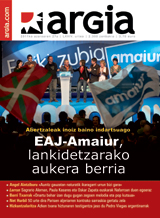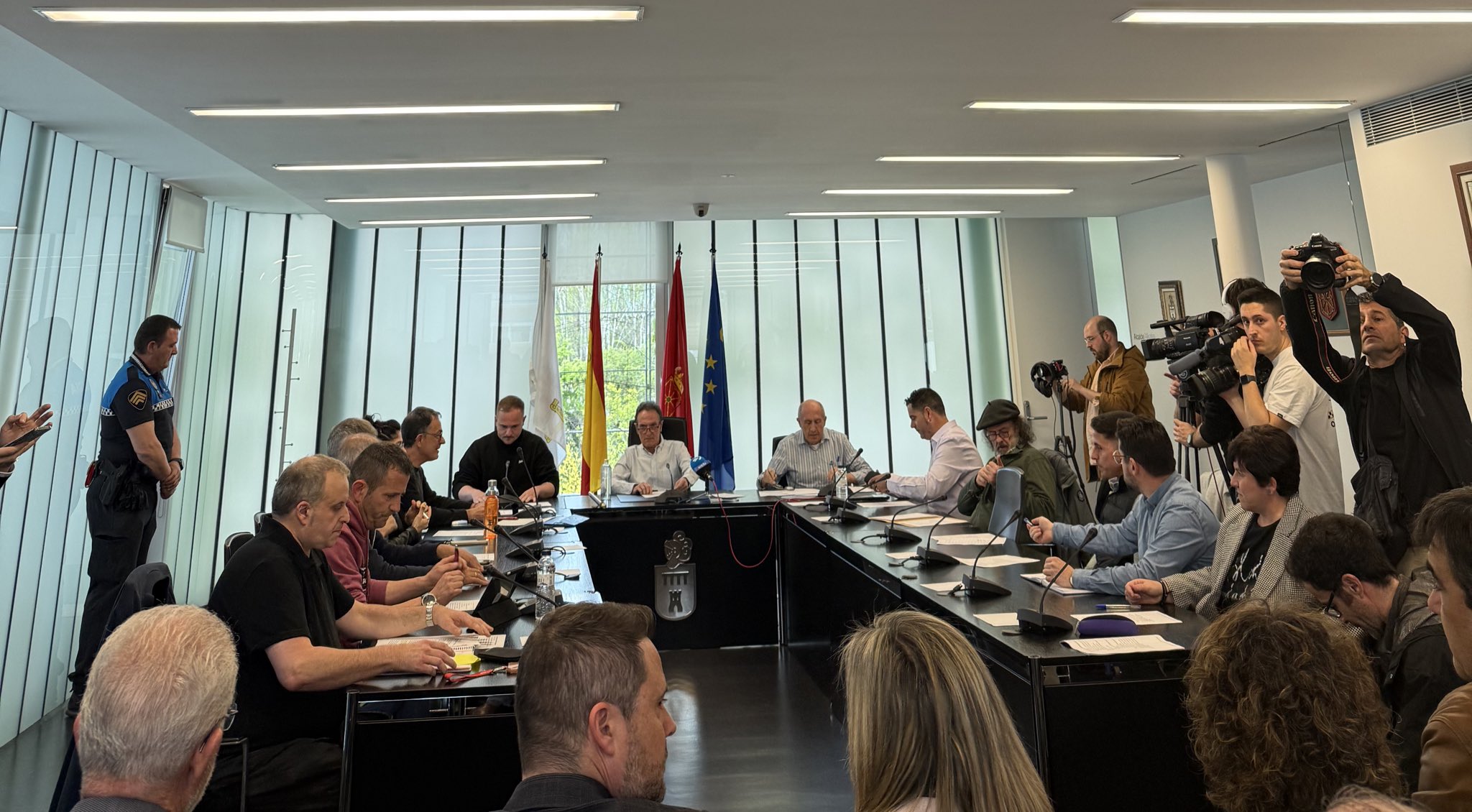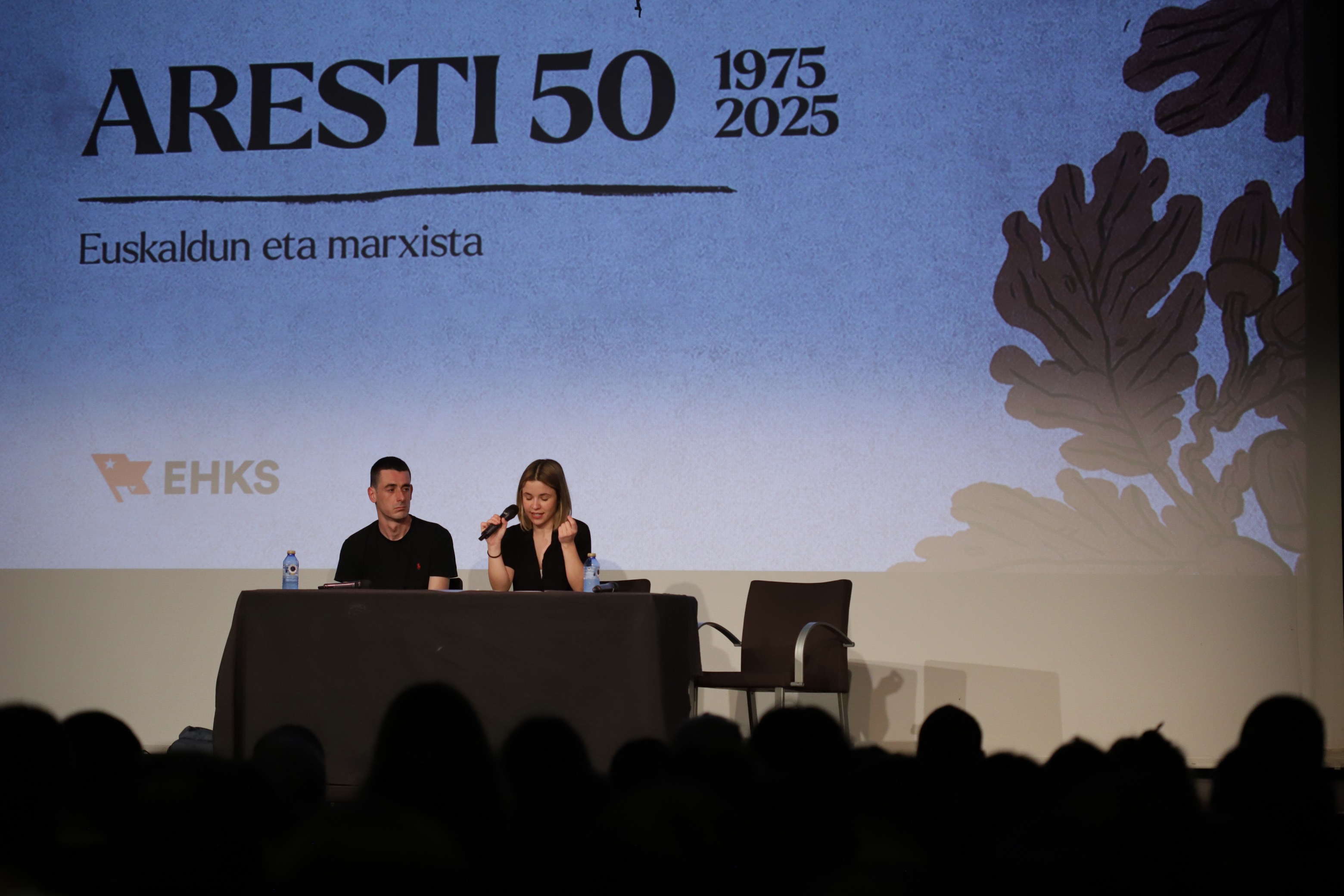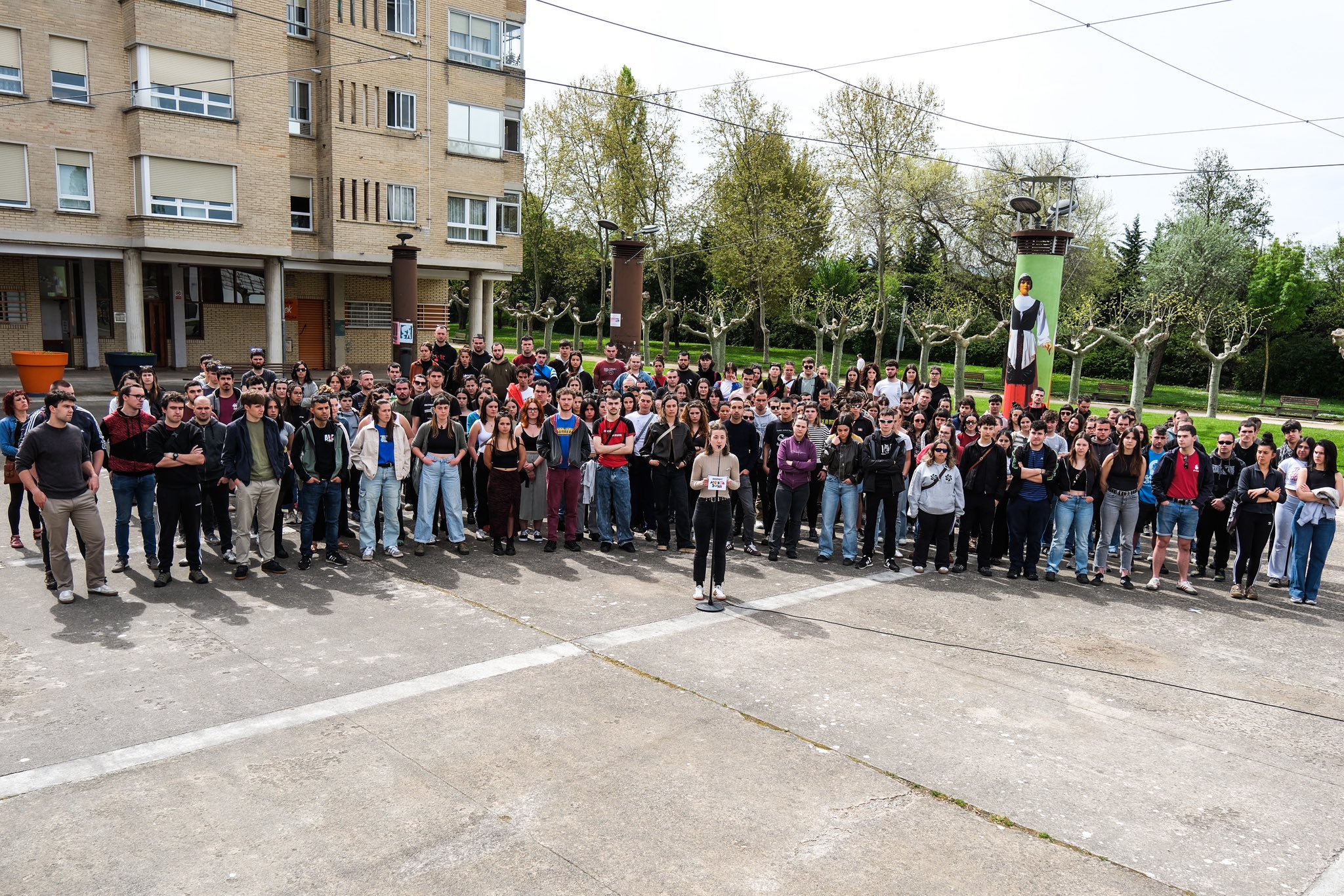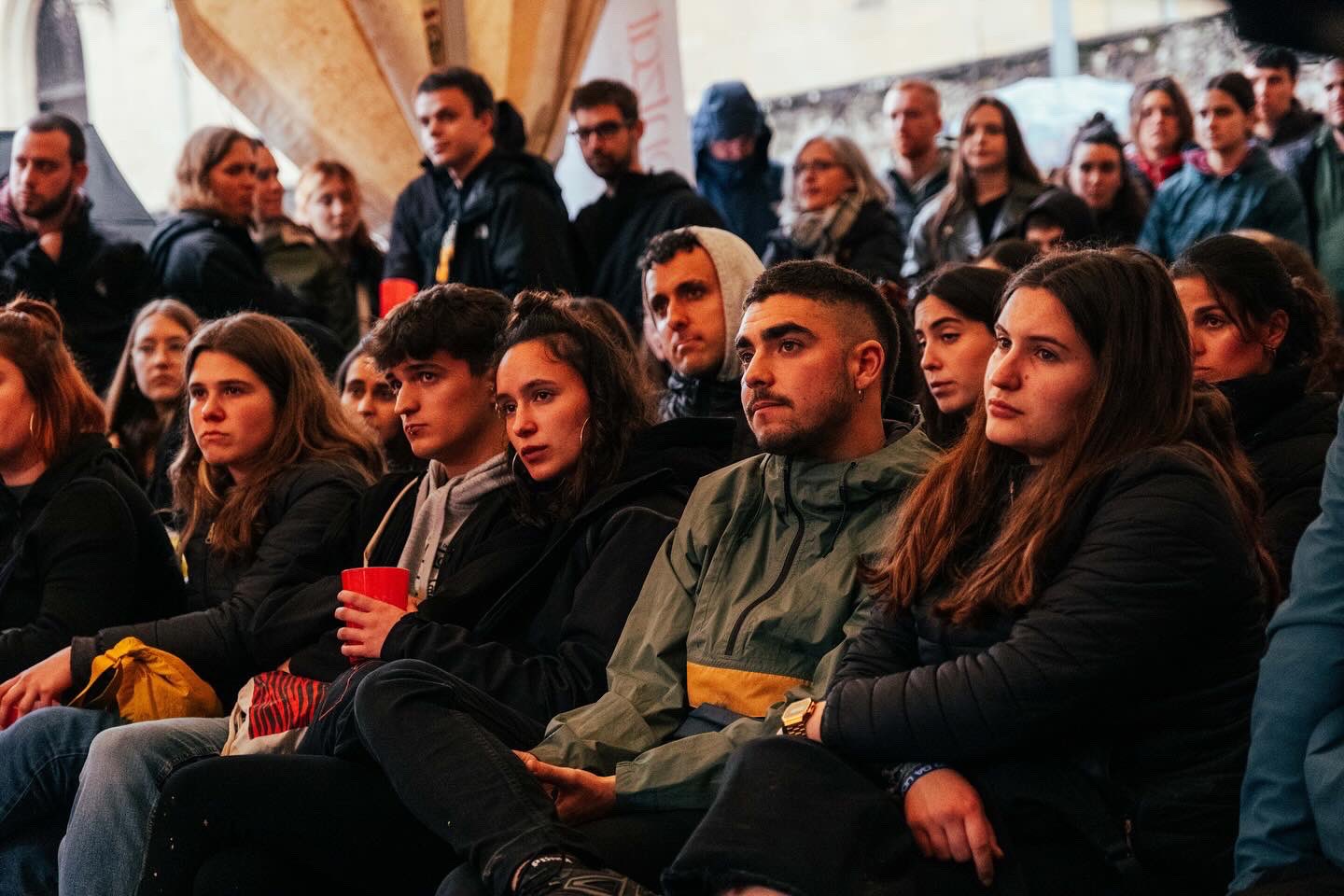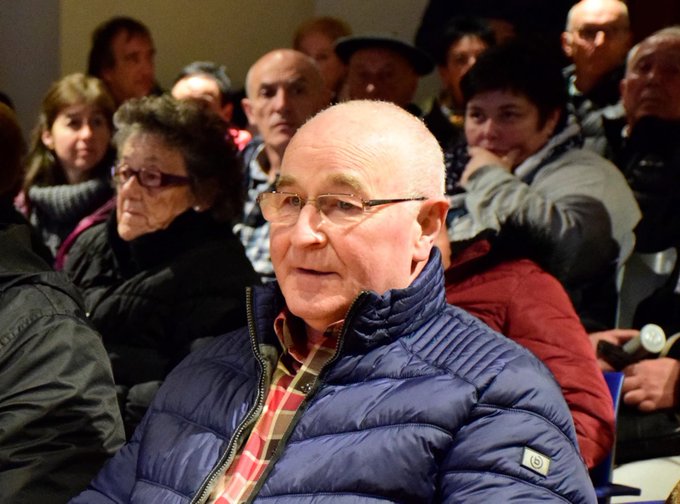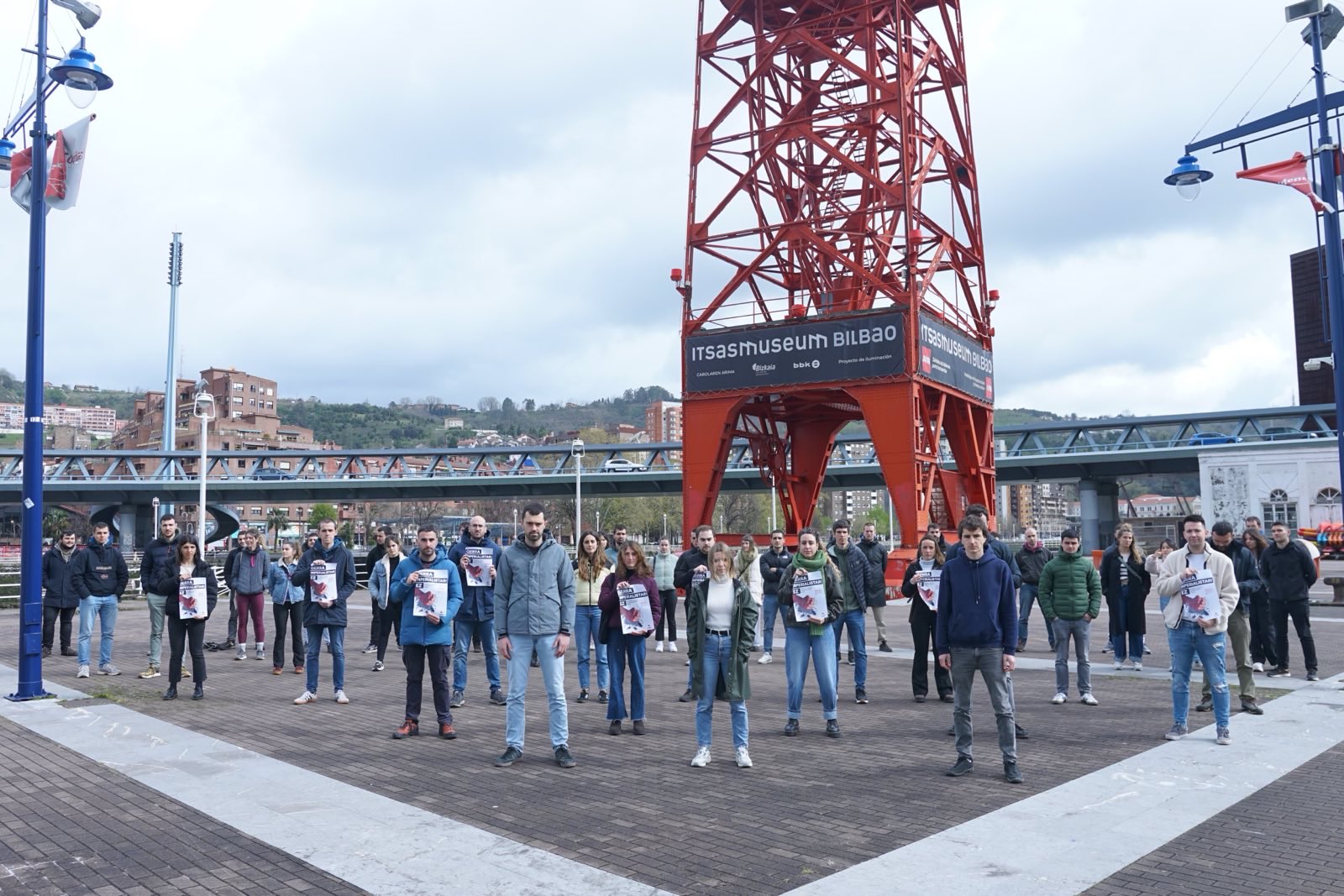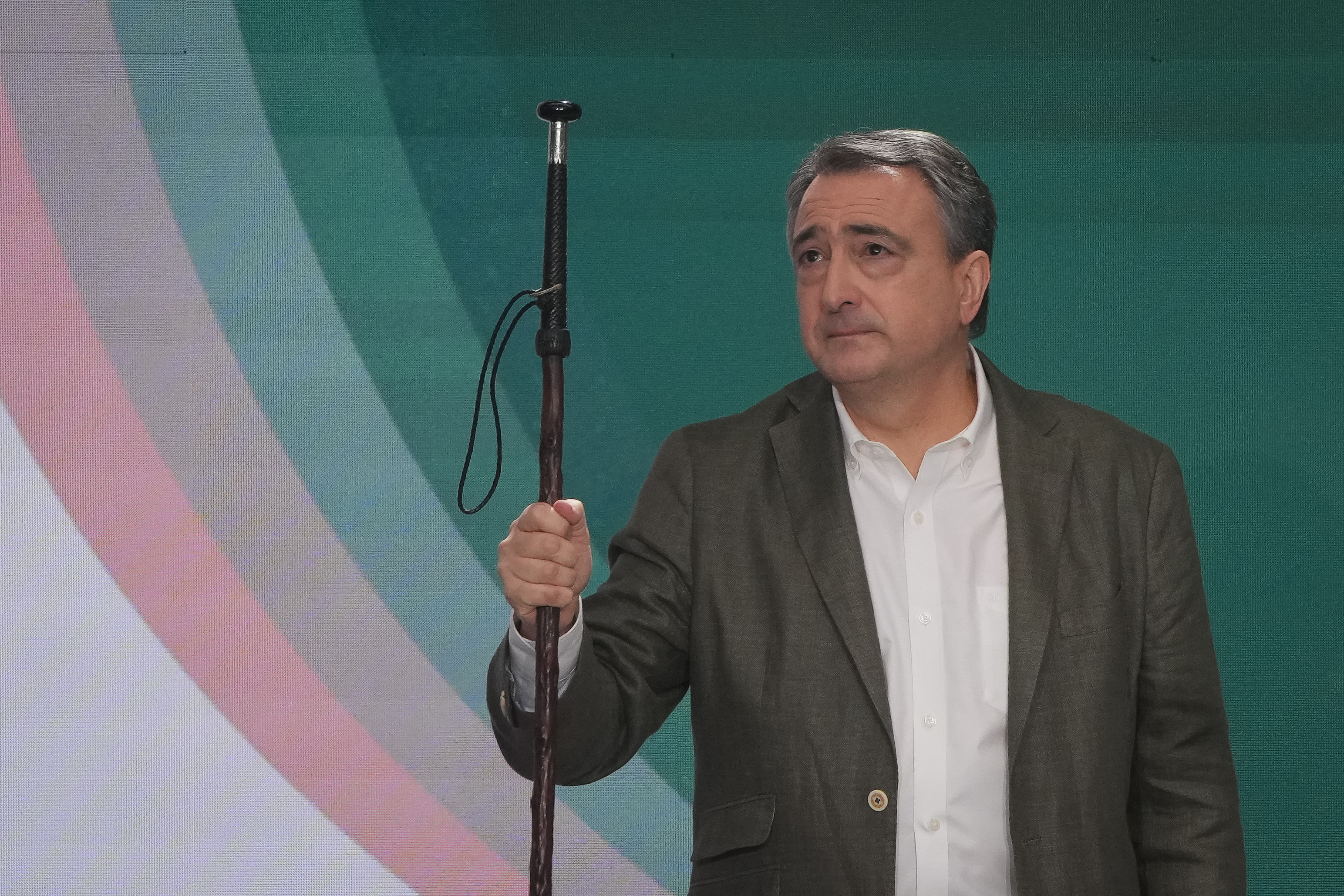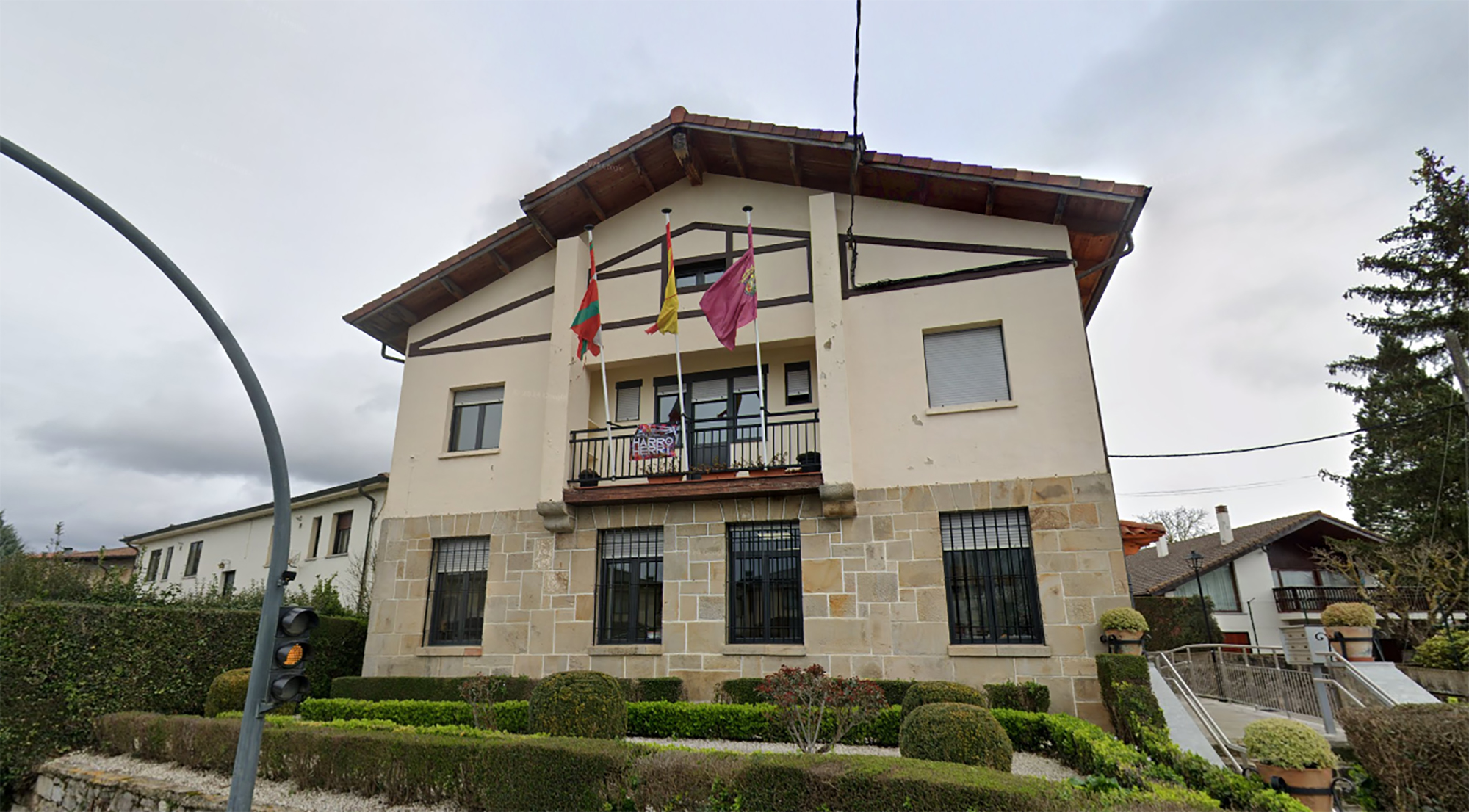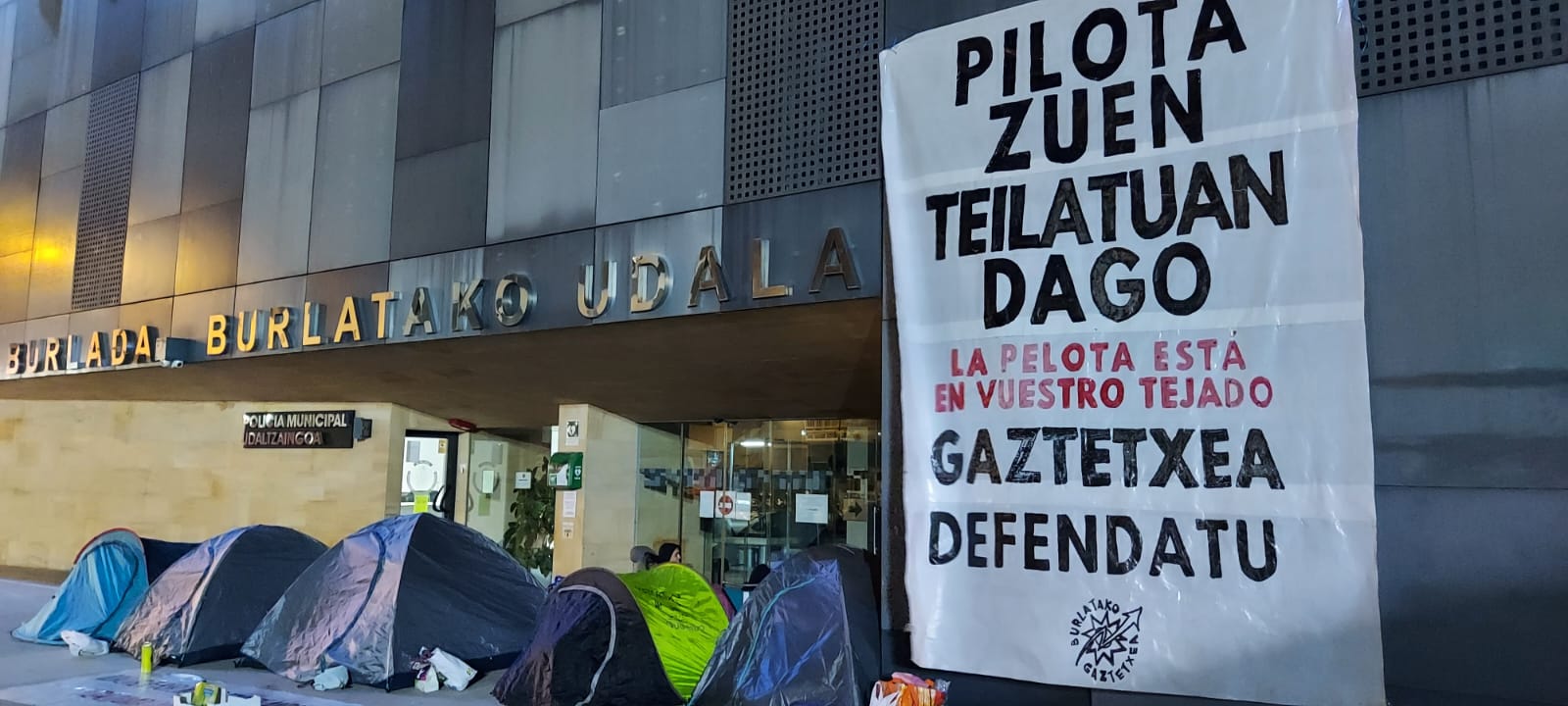The Abertzales venture on the road to Ajuria Enea
- The Basque parties have achieved historic results: There will be thirteen Members in the Congress of Deputies. The strong entry of Amaiur and the good results of PNV and Geroa Bai have highlighted the potential of nationalism in the Basque Country. On the other side of the coin is the collapse of the Socialist Party.
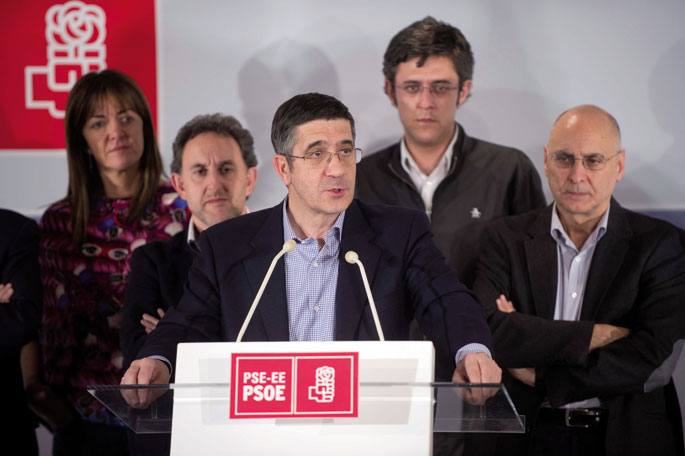
Many winners and just one loser, that's the picture that we've been left with in the general election in Spain. The loser, the socialist party. In Spain it has sunk and had the worst results of its history (110 seats), but the defeat has been more bitter for Patxi López, contrary to the forecasts, which cannot be presented in Madrid as the “only one that has been saved”.
Among the winners is Amaiur. As for representation, the sovereign coalition has become the first force of Hego Euskal Herria, with seven seats, and has reformed the political table, as Bildu did on 22 May last. As for the percentages and the number of votes, a technical draw is produced, as the four main forces (UPN-PP, Amaiur, PSE-PSN and PNV) exceed 300,000 votes, with a very small difference between the two forces.
The famous four-legged table has been strengthened. In the past, Spanish parties have often ignored the Abertzale left, alluding to ETA’s activity and resorting to illegalisations. Now, once ETA has left the guns and successfully overcome the obstacle of illegalisation, it will be difficult for someone to make politics in this country without taking into account the above picture.
Historic victory of the Abertzales
Euskal Herria has once again shown a different color from that of Spain. In addition, this time something unusual has happened. Spanish parties have always won the elections that look to Madrid, but for the first time nationalists have imposed themselves: 13 of the 23 Members at stake were nationalists. In 2008, the constitutionalists received 890,000 votes, compared with 620,000 nationalists, who went beyond the active abstention of the Abertzale left. In 2011, the Spaniards cast over 662,000 votes, compared to 700,000 nationalists.
The victory of the Abertzales has been, in some way, by the fall of the PSOE, which has lost more than 200,000 votes in Hego Euskal Herria. In this respect, the victory of the Abertzales is historic, but somewhat necessary; the nationalists have made much progress – they have obtained almost 80,000 more votes – but it has also had to do with the fact that in the state elections part of the electorate that is activated to vote for the Spanish parties has remained at home. There is only one look at the data of the abstention, which has increased by five points compared to 2004 – the 2008 data are blurred by the abstentions of the Abertzale left.
Amaiur and PNV, in tough competition
Following the results of Bildu, the PNV has been jeopardized by its hegemony and has been campaigning with messages launched against Amaiur by the Abertzale training. Both have met their objectives. In the light of the results, it can be said that both will go hand in hand in the pulley of Laterketa and you will see an exciting race on the road to Ajuria-Enea.
The PNV was intended to achieve its own parliamentary group (five seats) and to be the first force in the CAV, according to the Jeltzales. On the election night, Iñigo Urkullu insisted that the Jeltzales are “the first force of the Basque Country.” Aside from territorial counts, it is clear that the PNV has managed to maintain the traditional ordago of Amaiur, which has won 17,000 more votes than in 2008 and 2011. Moreover, in the CAV it makes a significant difference to the sovereign coalition (40,000 votes) and makes its main rival see that it will have to do a great job for the 2013 autonomic votes.
Amaiur has once again taken advantage of the cumulative strength of the sovereign sectors. It has won seven seats, it has representation in all the territories and in Álava it has stood above the PNV in number of votes. Amaiur has won 20,000 more votes than Bildu’s in the May foral and municipal elections, but the sum of Aralar’s results has not come. Some have interpreted the latter as saying that sovereign accumulation has hit the “peak”. Iñaki Antiquity has affirmed that the "sequence" is important and has fulfilled its objective to emerge strengthened from an election that "is not so adequate" for them. Amaiur has more gunpowder in the chamber, including the legalization of sortu and the release of Arnaldo Otegi. They will be vital factors for the future of the Basque economy in the forthcoming Basque regional elections.
On the other hand, what has happened in Navarra is significant. Nationalism has won two Members, one by Amaiur and the other by Geroa Bai, who have abstained. The coalition of Uxue Barkos has come as a great surprise in winning 42,000 votes and has stood near Amaiur (49,000 votes). It has become apparent that there is another large Basque area beyond that of the sovereign Left. From now on, collaboration between these two forces will be essential to deal with the hegemony of UPN in the Basque Parliament.
In general, the Abertzales have a unique opportunity to cooperate and make their voice heard louder in Madrid: three acronyms and two parliamentary groups. There is a lot of competition between them and, in many cases, also ideological discrepancies, but it would be stupid not to seize this opportunity as a result of competition and discrepancy. At least on some common points, such as the peace process, they should all move forward together. Basque society would not understand anything else.
The Patxi Lopez Slide
The Socialist Party has fallen 18% in votes in the CAV, from 430,000 votes to 254.00 p.m. All the surveys and forecasts announced better results for the Patxi López party, but the decrease has been similar to that of Spain and in this sense it does not seem that the citizenship has awarded López’s management in relation to the ETA’s end, although he has claimed that achievement over and over again in the campaign.
Now the future of Patxi López and the Basque Government that he presides over is wobbling. The Lakua Executive has less and less legitimacy and from now on the calls for electoral advancement will be heard loudly. It is about to see the role that López is going to play in his party at national level, and accordingly the tempos will also be different in the Basque elections. For its part, pp will unite López in a short chain, even more after having achieved an absolute majority in Madrid.
The absolute majority of pp has many collateral consequences, for the worst and for the good. As for the peace process in Euskal Herria, Mariano Rajoy’s triumph over such a large Madrid will silence many voices among the most fundamentalist sectors of his party and will have free hands to move forward in the process, if he has the will to do so, of course.
Koalizio abertzaleko hiru ordezkariek ohar baten bidez euren "frustrazioa" adierazi dute proiektu fotovoltaikoa ezin gelditzeagatik: "Egoera horren aurrean, ez gara legegintzaldia amaitzeko indarrez sentitzen". Proiektu honi ez! plataformak salatu du EH Bilduren... [+]
Arratzua-Ubarrundiako "Proiektu honi ez!" plataformak adierazpen hau kaleratu du, udalerri horretako EH Bilduko hiru zinegotziek dimisioa aurkeztu berritan. Izenburu hau darama testuak: "EH Bilduren moketako politika edo Iparra nola galdu".
Arratzua-Ubarrundia (Araba) herriko EH Bilduko hiru zinegotziek dimisioa eman dute Solariaren zentral fotovoltaikoagatik. Hau da hiru zinegotziek, Txetxu Zengotitabengoak, Laura Sanchok eta Javier Ruiz de Arkautek, herritarrei zuzendu dieten agur mezua.
EH Bildu agintean dagoen udalak gaztetxearen etorkizuna ziurtatzeko aterabide bat adosteari "uko" egin diola salatu du Burlatako Gazte Asanbladak. Beste hainbat gaztek udaletxe kanpoan kanpatu dute, eta goizean zehar bertara hurbiltzeko dei egin dute.
Maite Nosti diputatuak kargua utzi du alderdiarekin izandako desadostasunengatik, eta horrek kide bakar batekin utzi du alderdi faxista, talde mistoan sartzera behartuz.









